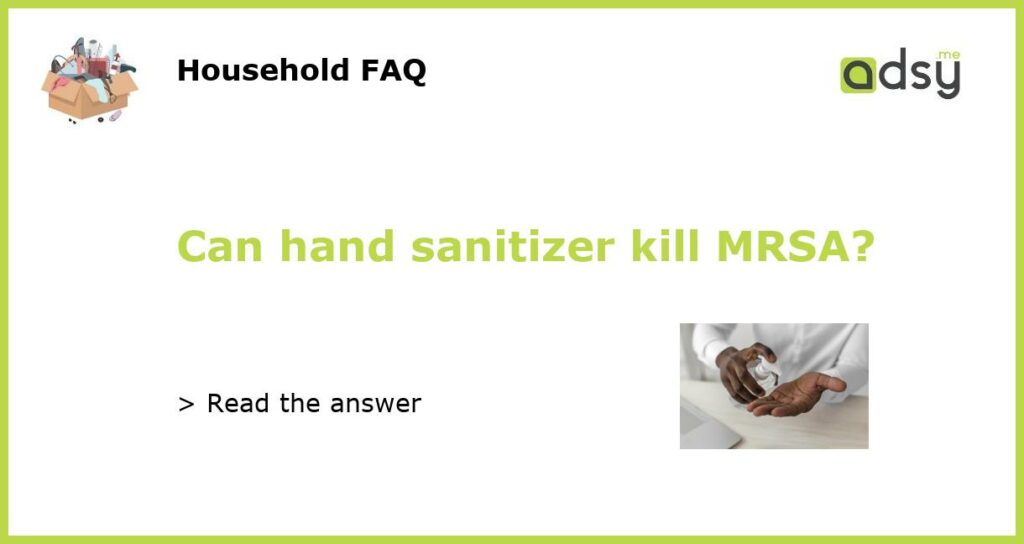What is MRSA?
Methicillin-resistant Staphylococcus aureus (MRSA) is a type of Staphylococcus bacteria that is resistant to several antibiotics. This type of bacteria can cause serious infections and is commonly found in healthcare settings such as hospitals and nursing homes. MRSA can also be found in the community and can cause skin and soft-tissue infections, as well as more severe infections such as pneumonia and bloodstream infections.
How does hand sanitizer work?
Hand sanitizer is a popular method of cleaning hands and preventing the spread of germs. The active ingredient in most hand sanitizers is alcohol, which can kill bacteria and viruses by breaking down their outer membranes. Alcohol-based hand sanitizers can be effective against many types of bacteria and viruses, but their effectiveness depends on the concentration of alcohol and the amount of time that the sanitizer is left on the hands.
Can hand sanitizer kill MRSA?
While hand sanitizer can be effective against many types of bacteria and viruses, it may not be effective against MRSA. MRSA is a tough bacteria that can survive on surfaces for long periods of time and can be resistant to many types of disinfectants, including alcohol-based hand sanitizers. While using hand sanitizer can still help reduce the spread of MRSA, it should not be relied upon as the sole method of prevention.
What other measures can be taken to prevent MRSA?
Preventing MRSA requires a multi-faceted approach that includes good hand hygiene practices, such as washing hands with soap and water and using hand sanitizer when soap and water are not available. Other measures that can help prevent the spread of MRSA include using disinfectants to clean surfaces in healthcare settings and the community, practicing good wound care, and using antibiotics judiciously. In addition, healthcare facilities may use special precautions such as isolating patients who are infected with MRSA to prevent the spread of the bacteria.
Hand sanitizer can be a useful tool in preventing the spread of many types of bacteria and viruses, but it may not be effective against MRSA. Preventing MRSA requires a multi-faceted approach that includes good hand hygiene practices, the use of disinfectants to clean surfaces, and the judicious use of antibiotics. By taking these measures, we can help prevent the spread of MRSA and other antibiotic-resistant infections.






